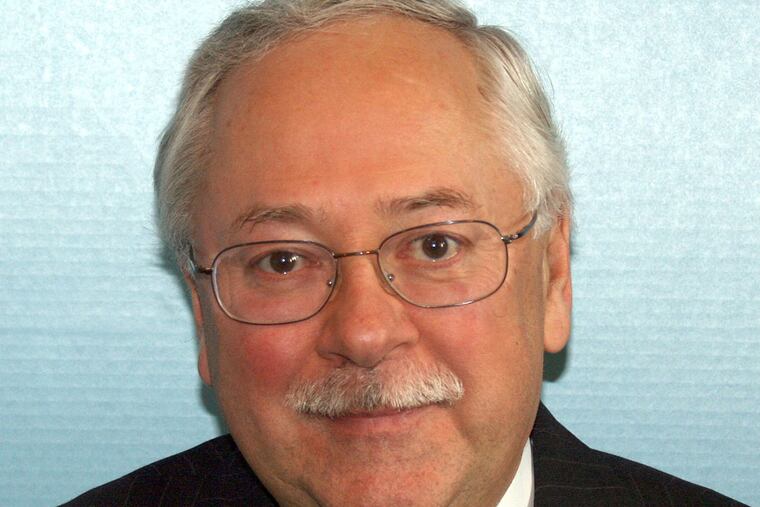Judge cultivates respect for independent judiciary
In 2008, U.S. District Judge Jerome B. Simandle wound up with a political hot potato in his caseload. The Camden federal judge had to rule on one of the "birther" lawsuits - filed in courts across the nation by people contending that presidential candidate Barack Obama was not qualified for the job because he was not a "natural-born citizen" of the United States.

In 2008, U.S. District Judge Jerome B. Simandle wound up with a political hot potato in his caseload.
The Camden federal judge had to rule on one of the "birther" lawsuits - filed in courts across the nation by people contending that presidential candidate Barack Obama was not qualified for the job because he was not a "natural-born citizen" of the United States.
No matter how a judge ruled, accusations of playing politics would inevitably ensue, said Simandle, now chief judge of New Jersey's federal court system.
But, Simandle said, the cases also served to underscore the importance of an independent judiciary - missing in many nations around the world.
"I'd like people to know how individual rights are protected in our democracy," he said.
That's why Simandle has made it a priority to reach out to schools, lawyers, and the population as a whole.
"The problem is twofold," Simandle said last week. "Civics education has declined, so the high school curriculum doesn't include much about the third branch of government."
Also, he said, "judges were too cloistered and cocooned to teach about the court and to promote what the courts do."
It would help, he said, "if judges would make themselves a little more available and make the courthouses a little more friendly and welcome ... to put some flesh and blood on what the judges do."
On Monday, Simandle will meet in Newark with the officers of the Association of the Federal Bar of New Jersey.
On the agenda are this year's informal brown-bag lunches for lawyers, particularly those new to the practice of law.
"He encourages the judges to participate and to make themselves available," said Newark lawyer Gerald Krovatin, the association's president. "It's great for the young lawyers to sit and chat with the federal judges and have the opportunity to network with them."
Simandle said the lawyers "are interested in hearing the judges' pet peeves."
Among the peeves are lawyers who call the judges' chambers ostensibly to discuss scheduling, but really to engage a law clerk or a staff member to discuss the case, and lawyers who don't "prepare their clients for what is happening in court."
On Simandle's personal agenda is a Sept. 27 gathering of students from four Camden County high schools for mock trials at the Camden courthouse, with the students presenting their cases to federal judges while their law clerks act as mentors.
"He's always done that kind of community outreach and educational effort," Krovatin said. "That's unique for a federal judge and that goes way beyond what he is required to do as a chief justice."
Simandle's efforts come at a critical time for the courts. Caseloads are increasing and funding is decreasing, providing an impetus for Simandle to make sure the public understands the importance of courts.
The federal budget sequestration cut the New Jersey federal court budget from $30 million to about $28.5 million. New Jersey's federal court includes 24 judges, 13 magistrates, and three courthouses, in Newark, Trenton, and Camden.
Simandle cut building maintenance, gave up some space, and reduced some mental-health counseling for people arrested for federal crimes.
"We haven't hired a new probation staff member since 2010," he said, with 100 people trying to handle the work once done by 130.
New Jersey's federal court handles 9,000 civil cases a year, up 22 percent from nearly 7,400 cases three years ago. Each year, about 1,000 criminal cases come before judges, Simandle said.
"We've been receiving a lot of multi-district litigation," Simandle said. These are civil cases, often complicated, that are filed in many courts on the same topic and consolidated in one court. New Jersey also ranks sixth in the number of patent cases, also complicated, because of litigation involving the state's pharmaceutical companies.
Whether the case is drug patents or birthers, Simandle said, an independent judiciary is key.
The "birther" case landed in Simandle's caseload in September 2008. He dismissed the case, ruling that the plaintiffs, New Jersey residents, lacked the standing to file.
"It was a generalized grievance," Simandle said, "where [the plaintiff] suffered no injury different from the population as a whole."
His opinion, which was affirmed by the U.S. Court of Appeals for the Third Circuit, unleashed a lot of unflattering criticism on the Internet, Simandle recalled. Not pleasant, but part of the territory for an independent judiciary.
"When a judge speaks up for the independence of the judiciary," Simandle said, "he can wrongly be accused of being able to do anything he wants to do, and that's not true at all.
"Judges are governed by the Constitution and the law, and it's their duty to apply the laws to the facts as they find them and do so in a fair and open process that's transparent and open to the public."